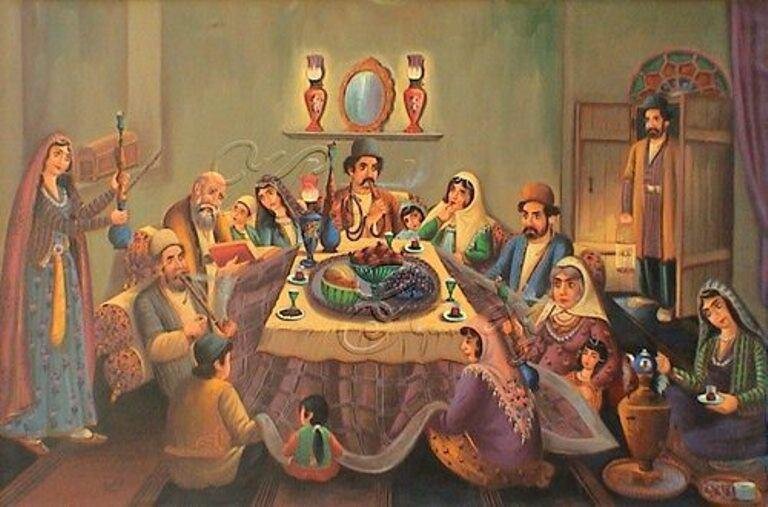Another coronavirus casualty: how Iranians are preparing for the Yalda night?

Children chasing each other, mothers setting out dried nuts, pomegranates, and watermelons amongst other fine foodstuffs, and fathers watching a ball game amid all! Does it sound familiar?
Well, for nearly all Iranians, that may conjure up images of the Yalda celebration in honour of the longest night of the year! ‘Coming together’, as the core philosophy of the Yalda night, is at odds with the social distancing rules, which are highly recommended in the existing coronavirus-era.
With the festivity approaching, the Iranian government has announced decisions to tighten coronavirus restrictions. Non-essential shops and businesses should be closed as of 6:00 p.m. local time on Saturday and Sunday, yet citizens have been told to refrain from driving as of 8:00 p.m.
Ahead of the ancient festival of the winter solstice, which falls on December 20 this year, the Iranian president Hassan Rouhani and health officials have called on people to the festival virtually instead of having family gatherings.
“I request the people to celebrate the Yalda night as an online event,” Rouhani said at a meeting with the National Headquarters for Coronavirus Control last week.
The restrictions come amid concern at the surge in infections in the country, recently seeing some 7,000 infections recorded in a single day.
“Contrary to previous years that my wife and I went to my parents’ house, or hers, we should stay at home for the sake of our health,” Mohammad Tavakkoli, 37, told the Tehran Times.
On Saturday, a shopkeeper who works at a confectionery store said his business had been badly hit due to the COVID-19 crisis. “Usually, at this time of the year, we saw costumers queuing to buy sweets, nuts, and dried fruits…”
“Nothing different from other nights of the year! Staying home looking after my little daughter while my husband is away as he works in another city and can’t join us celebrating Yalda since the across country travels are restricted due to the COVID-19 outbreak,” a woman who did not give her name told the Tehran Times on Saturday.
Of all the ancient Persian festivals, only two are celebrated by Iranians worldwide -- Yalda night (the birth of a new sun) and Noruz or Persian New Year (the birth of a new day).
The story of Yalda may perhaps be interpreted as a tale of courage and effort during darkness, a triumph of light and human warmth that ultimately causes the spring to bloom in hearts.
Nationally called “Shab-e Yalda” or “Shab-e-Chelleh”, it literally means the night of the forty. This refers to the first forty days of winter that are often the coldest and toughest to bear.
Though it is not even an official holiday, Yalda still stands head and shoulders above some other ancient traditions. By the way, television and radio programs fully cater to it by airing special programs.
The reason is that it revolves around the rich, genuine Persian traditions. That’s why families are still eager to seize the moment and become fully engaged, putting their cell phones and other distractions aside.
People on Yalda Night are usually served with fresh fruits and colourful Ajil (a mixture of dry fruits, seeds, and nuts) in floral bowls. To Iranians, fruits are reminders of abundance in summer. Watermelon and pomegranates, as symbols of bounty, are the traditional fresh fruits of this night. It is believed that eating watermelon before the arrival of winter can immunize the body against illness.
Following a hot dinner, many people often recite poetry, narrate stories, chant, play musical instruments, or chat cozily until midnight or so.
Well, this was a glimpse of the virus-hit Yalda celebration in honour of the longest night of the year!
AFM/
Leave a Comment